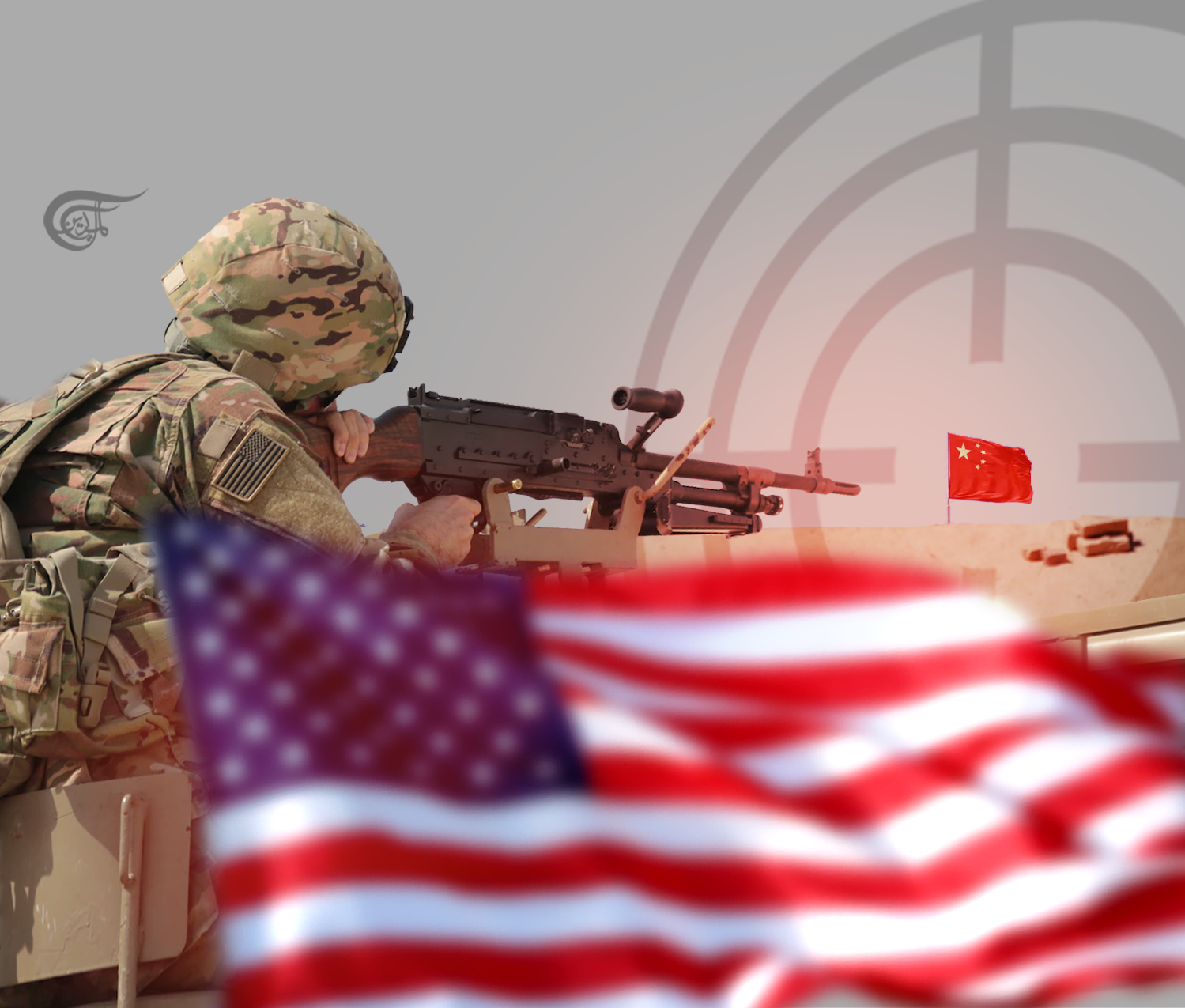Is AUKUS the Beginning of a New Cold War?
War supposedly provides the much-needed lube to the cogs of the US economy. That is why it is no surprise that a well-timed war or news of a “successful” encounter with a terrorist “mastermind” can be a useful magic pill for a faltering US economy and for a US president’s dwindling poll ratings.
War supposedly provides the much-needed lube to the cogs of the US economy. That is why it is no surprise that a well-timed war or news of a “successful” encounter with a terrorist “mastermind” can be a useful magic pill for a faltering US economy and for a US president’s dwindling poll ratings. After World War II the US has been busy waging war all across the globe. Whether it is in Korea, Vietnam, Latin American, the Middle East, or Afghanistan we can see that these places are permanently mutilated by America’s insatiable compulsion to wage war. US President Dwight D. Eisenhower coined the term Military Industrial Complex (MIC) on January 17, 1961, and warned against it. It seems his warnings went in vain.
Now that the US is wiping the dust of Afghanistan off its boots, the world is witnessing a lack of interest in the War on Terror and a surge of interest in the USA’s new bogeyman (China). The recent AUKUS deal which sprang out of nowhere and even irked one of US’s traditional allies (France) provides evidence for a new Cold War.
Despite waging the war on terror for two decades, the US economy didn’t fully recover from the global financial crisis and the COVID-19 pandemic further dented the economy. The war on terror had become messy, with too many destroyed nations to rebuild, catering for refugees and the fast-paced world of social media kept highlighting the US atrocities committed abroad; all this made the war on terror an unprofitable endeavor. This perhaps motivated the planners in the US to expedite the process to start a new cold war as a means for both economic revival and for maintaining global hegemony. The groundwork for portraying China as the bogeyman had been started during the Trump Presidency and now Biden simply has to up the ante.
Starting a Cold War with China seems like a much more viable option for the US’s Military Industrial Complex as compared to the War on Terror. The US’s MIC is much comfortable in dealing with a cold war as it authored the playbook for the first one. The cold war provides a long-term bogeyman that is comparable in military capabilities vis-à-vis the US, which justifies the extra billions spent on R&D in weapons development and production and keeps the economy going. The war on terror, however, proved to be unsustainable for the US economy as it didn’t justify spending billions on new weapons development to fight against rag-tag terrorists, in comparison a cold war dwells upon an arms race. The war on terror held little promise in weapons sales to allied countries, whereas a cold war holds tremendous promise in this regard and the AUKUS deal is a prime example of such extravagant weapons sales deals to prop up allies against a bogeyman.
The pact, known as AUKUS is a new defense partnership among Australia, UK, and the US that will furnish Australia with eight new nuclear-powered submarines. Australia will enter a select club of nations with such submarines. The others include India, Russia, France and China, UK, and the US.
In addition to the submarine fleet, AUKUS would combine forces of the partner countries on futuristic capabilities like artificial intelligence, quantum technologies, and some undersea capabilities. The AUKUS partnership also guarantees the Australian military with new toys comprising of long-range strike capabilities which include; Tomahawk cruise missiles, Joint Air to Surface Standoff Missiles with a range of 900 km, Long Range Anti-Ship missiles, and precision strike guided missiles for its land forces.
Many analysts in the West are downplaying the AUKUS as a step towards the cold war, they are terming the AUKUS and the US’s other measures like the Quad to counter China as mere mini-lateral forums for cooperation. However, ex-Undersecretary of Defense Michèle Flournoy has been beating about the bush and called a spade a spade when she said, “the best way to deter China from invading Taiwan is to have the ability to sink China’s navy in 72 hours.” The AUKUS deal is not a small deal, in fact, it comes as a replacement to the French Submarine deal worth $66 billion which was for the sale and development of 12 conventional diesel-electric submarines, the deal was termed as a mother defense deal. The AUKUS deal is most certainly broader in scope than the French deal, which means its price tag is going to be much higher than $66 billion. There seemed to be much US desperation and anxiousness behind the AUKUS partnership, which came at the cost of betraying an ally. This certainly makes the AUKUS seem like a step in Flournoy’s direction rather than a mere mini-lateral deal as some in the West are terming it.
The new cold war seems to be very different from the previous one, despite the trade war and the US’s anti-China stance, the trade between the two countries seems to be ever-growing. In the year 2020 alone, the trade between the US and China was recorded at $560 billion. During the first cold war, trade between the two superpowers the US and the Soviet Union was very limited, and the highest level of trade between the two powerhouses was recorded at $4.5 billion in 1979. The trade dependency of one another is both unique for two confronting countries as well as a stabilizing factor. This is why the new cold war seems very different and its future form is difficult to predict. Another differing factor is the fact that, within the first cold war, the Soviet Union advocated socialism as a substitute to capitalism and it became a contest of “isms” and ideas. This new cold war has not, at least till now, been characterized by any meaningful ideological contestation. So far, it seems more like ‘China containment policy’ or a ‘clash of civilizations’.

 Shafei Moiz Hali
Shafei Moiz Hali
 6 Min Read
6 Min Read












